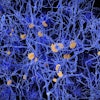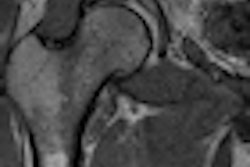MR perfusion imaging can be used to help determine if malignant brain tumors in adults have progressed by showing evidence of abnormal blood vessel formation, according to a study published in the March issue of the American Journal of Neuroradiology.
Researchers at Wake Forest Baptist Medical Center prospectively evaluated 59 adult patients with suspected gliomas at multiple sessions over 11 months, assessing tumor status and creating hypothetical treatment plans, using conventional MRI and conventional MRI with perfusion imaging.
The study found that treatment plans changed for 8% of patients, and confidence in treatment plans increased in 58% of the cases based on MR perfusion imaging results.
Lead study author Dr. Annette Johnson, associate professor of radiology at Wake Forest Baptist, said the results suggest that conventional MRI may not be the best practice anymore.
"After treatment for a brain tumor, which often includes surgery, radiation therapy, and chemotherapy, the area of the original tumor will often continue to look abnormal on conventional MRI," she said. "This does not necessarily mean that the tumor has returned. MRI perfusion imaging can help tell the difference between the expected effects of successful treatment and tumor regrowth."


.fFmgij6Hin.png?auto=compress%2Cformat&fit=crop&h=100&q=70&w=100)





.fFmgij6Hin.png?auto=compress%2Cformat&fit=crop&h=167&q=70&w=250)











